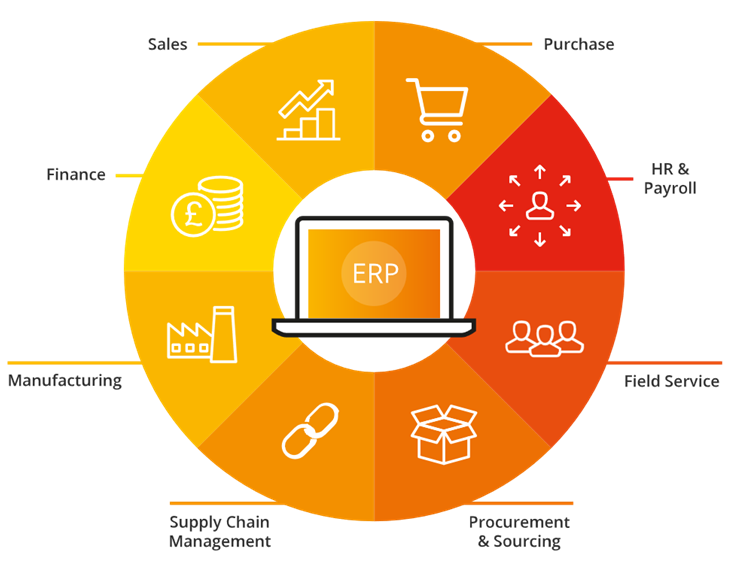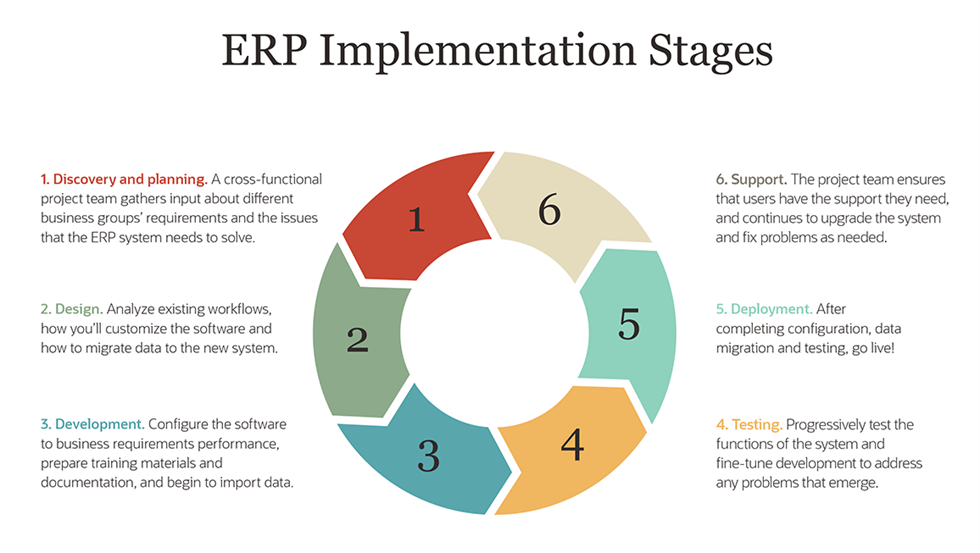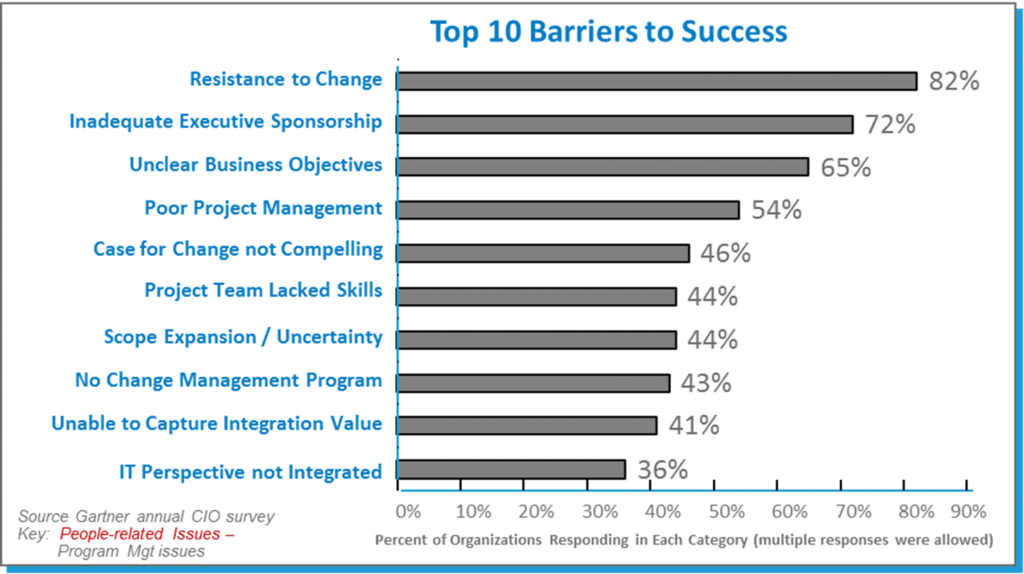Why Do ERP Implementations Really Fail?

Enterprise resource planning software serves countless benefits. From fixing your service delivery problems, data collection to saving on costs, implementation of ERP can blow new life into your business.
But the ERP implementation process does not always go as planned. Unfortunately, technical problems cannot be solved merely by throwing money.
Normally, a typical ERP package contains between 10 to 25 modules designed to automate almost all aspects of your business processes and integrate all departments into one platform. Here is the thing; when you are integrating an ERP solution with your existing infrastructure, problems are bound to arise.
ERP failure has many forms and scenarios. For instance, stoppage of production, running off budget, or not achieving the return on investment. You’d be amazed to learn that there is a widespread consensus amongst experts that mostly ERP implementation failure is mainly caused by people and rarely by the software.
To quote an example, oftentimes, failure can be blamed on the top management for not providing adequate resources or project managers missing deadlines.
But truth be told, there are quite a several reasons why ERP implementation fails other than the reasons mentioned above.
Let’s have a look at some of the prominent ones.
Setting Up Unrealistic Expectations

Projects are always started with lots of enthusiasm and expectations are always high of its success. However, many times organizations rush into the process without enough planning and without defining their business requirements. This also includes, not setting the goals they wish to achieve.
This is the perfect recipe for failure. It is important to move ahead after setting clear goals. In fact, every organization should have its own defined benchmarks – defining what they deem successful.
Remember, you should never overly trust ERP vendors. They may provide you with relevant information or best practices but they can only take you so far.
Not Embracing the Change
Oftentimes, companies tend to view ERP implementation as optional rather than considering it a necessity for the success of their business. That is why no effort is made to assess user acceptance of the new system. Beware, it is disastrous to underestimate any change in your organization.
To avoid such difficulty, ready your organization to expect changes from the recent ERP implementation. You should seek the input of your staff and engage them from the beginning of the process.
It is important to evaluate whether the solution is compatible with your organizational culture in order to make adjustments where necessary.
Lack of Commitment by Stakeholders

ERP implementation requires support from all key stakeholders. However, if top executives are too busy to be part of the implementation process or are unwilling to allocate resources for the project, it can be a big blow to the ERP implementation process.
It is pertinent to mention Carl Wilson’s coined term “moving the cheese” in dealing with the top executives. This approach works like this; in order to get executives on board, you should recognize, reward, and compensate those who are willing to get more involved in the system.
Another way to get them on board is by providing training and coaching to help them achieve the desired goals. Keep in mind, there is a chance that some of these executives may view it just as another IT project and not a viable way of automating existing processes.
Lack of Competent Project Managers
The shortage of competent project managers is widespread in many organizations. Major processes, especially ERP implementation needs good leadership to keep things on track and hold people accountable to avoid bottlenecks in the implementation.
One of the best ways to go about it is to hire someone to take charge of the implementation and management. If you think that your organization does not have someone of this calibre then hire externally. You always have the option of getting the services of a third party for this purpose.
Not Aligning the System with Business Processes
One of the major reasons for ERP solution failure is because organizations cannot assess whether the system is working or not. It is pretty likely that things won’t go as planned. In such scenarios, most ERP solutions need to be modified at some point in time to align them with the current status of the business.
Fundamentally, most ERP solutions do not fail entirely all by themselves. In fact, in reality, some of its parts malfunction which ultimately derails the complete process.
Again, the organization might have ignored how their business processes are affected by the implementation and introduce customization that works against expected benefits.

Ignoring Common Application Deficiencies
Many organizations have the propensity to overlook some key requirements, needed for successful ERP implementation. This results in the failure of many system functionalities.
Furthermore, there can be a lack of proper management in the delegation of workflow approval authority which causes security risks. Also, there can be a lack of inquiry access to configurations throughout the implementation process. All these weaknesses combined risk the successful implementation of the ERP solution.
Final Word
There is no doubt that an ERP solution can transform the business positively bring long-term benefits. It is only wise to outline and decide upon the objectives from early on to achieve ERP implementation success. At the same time, make sure to keep the stakeholders on board after ensuring that they are adequately trained.
As thoroughly discussed, ERP implementation is not an easy task. Why not leave it to the experts? Reach the professionals at Stallions Solutions for assistance. Schedule a Teams meeting with Stallions Solutions.






